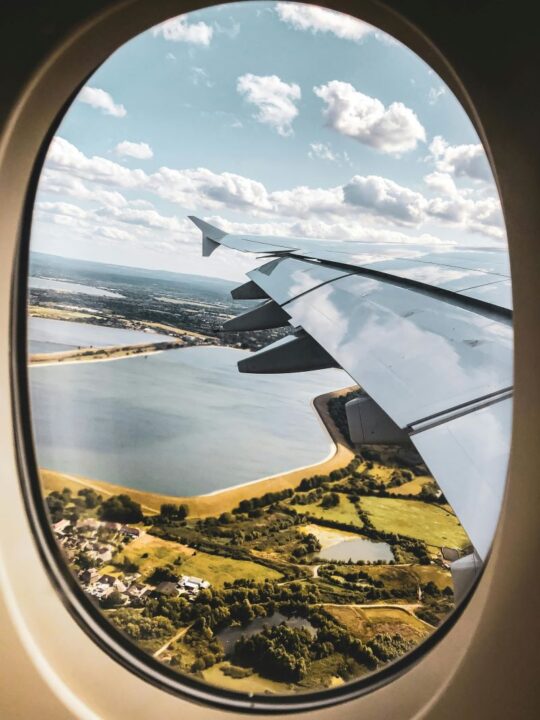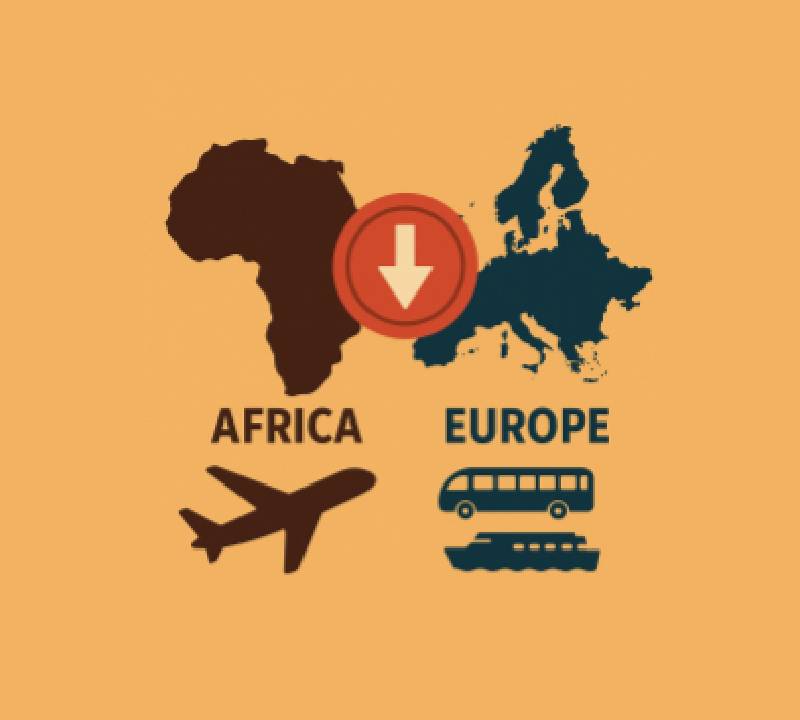Image: ChatGPT
Whether by air, land, or sea, traveling can be both a richly rewarding experience as well as an economic driver for many countries who leverage a functional transportation system to continually attract tourism and facilitate business activities across nations.
Across continents, countries continue to design ways to improve transportation services as well as make them cost-effective for their citizens and visitors alike. In comparison to each other, traveling across European countries would seem pocket-friendly as compared to traveling within countries in the African Continent.
For example, traveling from France to Netherlands by train could cost about €100 – €230, bus fares would be about €35 – €65 and the cost of flight would range from about €85 – €270. In Africa, not only is the transport option limited to just flights, but the cost variation is also higher when reviewed under the same currency.
A trip from Lagos to Ghana would cost about €249 for a 1hr 45mins flight unlike from Austria to Germany which is about 1hr 5mins and costs about €118, or from Spain to Germany which is about 2hr 45 min depending on the departure location and costs about €65 to €240. For a much farther location in Africa, the cost from Nigeria to Johannesburg South Africa when converted to Euro currency could range from €266 – €1,114.
Not only is the price steep but travel across African countries can also come with several delays due to the number of hours wasted in layovers.
What then seems to be the challenge with African countries struggling with high costs in travel fares as compared to their European counterparts?
Visa Policies
traveling across European countries is seamless and pocket-friendly. The reason for this is not far-fetched as European countries enjoy a collapsed border control policy and a greater integration system with the introduction of the Schengen Area agreement. The agreement ensures that citizens from member states can enjoy passport-free travel and transit for tourism and business across countries under the agreement. Also, these countries enjoy an efficient transportation system, especially with several high-speed trains crossing borders and making movement seamless. This is uncommon among African states.
Unlike its European counterpart where 29 out of the 44 countries are signed up to the Schengen agreement, in Africa, a unified visa policy resides mostly within the regions and not the entire continent. Currently, only the ECOWAS (Economic Community of West African States) and the CEMAC (Central African Economic and Monetary Community) seem to be driving towards a visa policy that allows visa-free travel within the regions. Despite such lofty attempts, the cost of travel among member states is still not pocket-friendly and stress-free.
Restrictive Transport System
Transiting between African countries is challenging due to the limitedness of the transport options. While European countries leveraged the use of airplanes for cross-border travel, they also enjoy the added advantage of speed trains, buses, and ferries as part of the travel options available to their citizens. In Africa, air travel is the likely option for cross-border transit while bus travel is explored for countries sharing proximity and only as a last result based on financial exigencies.
Economic Irregularities
In Africa, the instability in economic policies creates uncertainty that discourages business investments, especially for private companies looking to invest in the transportation sector. The Euro currency, which is the common denominator across the continent, makes it easy for businesses to plan take risks, and make projections on the business viability. This is not common in Africa as each country’s economy operates in isolation with so much irregularity due to policy somersault leaving many businesses uncertain about the returns on investment thereby restricting their entrance or expansion in the transport sector.

Photo by Tove Liu
Unwillingness To Build Partnerships
In 1999, African States converged to adopt the Yamoussoukro Decision (YD) which was a treaty to open up the air space and liberalize air travel among African states. The goal was targeted at boosting frequency of travel, stimulating economic growth, driving tourism and facilitating increased trade among member states.
Not only would this initiative have revolutionized the African air transport market and created jobs, but it would also have fostered competition and lowered the cost of air travel.
As explained in her article – The Sky is Not the Limit: Africa’s Self-Imposed Air Travel Crisis by Marie-Noelle Nwokolo an Associate Researcher with the Brenthurst Foundation, “At its root is Africa’s failure to fully implement the Yamoussoukro Decision (YD), a 1999 agreement in which African countries committed to opening their skies to each other. The goal was clear: allow airlines from one African nation to freely operate in another, fostering competition, lowering ticket prices, and improving connectivity. In theory, this would have created a more integrated and accessible aviation market, much like in Europe today.
The Single African Air Transport Market (SAATM) was launched in 2018 to operationalize YD. Yet, over two decades later, progress remains sluggish. Many governments protect struggling national carriers and maintain rigid control over airspace, undermining the very agreements they once signed. The result? Limited routes, overpriced tickets, and the absurdity of being rerouted through Paris or Dubai to reach a neighboring capital” (https://www.thebrenthurstfoundation.org/news/the-sky-is-not-the-limit-africas-self-imposed-air-travel-crisis/)
This lack of inability to build partnerships across borderlines within Africa has continued to hinder the development of a cost-effective air transport system.
While efforts are been made to address these challenges with the push for the African Continental Free Trade Area (AfCFTA) agreement as well as many African countries offering E-Visa options and Visa-free travel to select countries, more effort needs to be in place for the continent to put in place less restrictive border policies that encourage trade and tourism as well as improve on infrastructure that offers diversity in travel options.

Okechukwu Nzeribe works with the Onitsha Chamber of Commerce, in Anambra State, Nigeria, and loves unveiling the richness of African cultures. okechukwu.onicima@gmail.com





